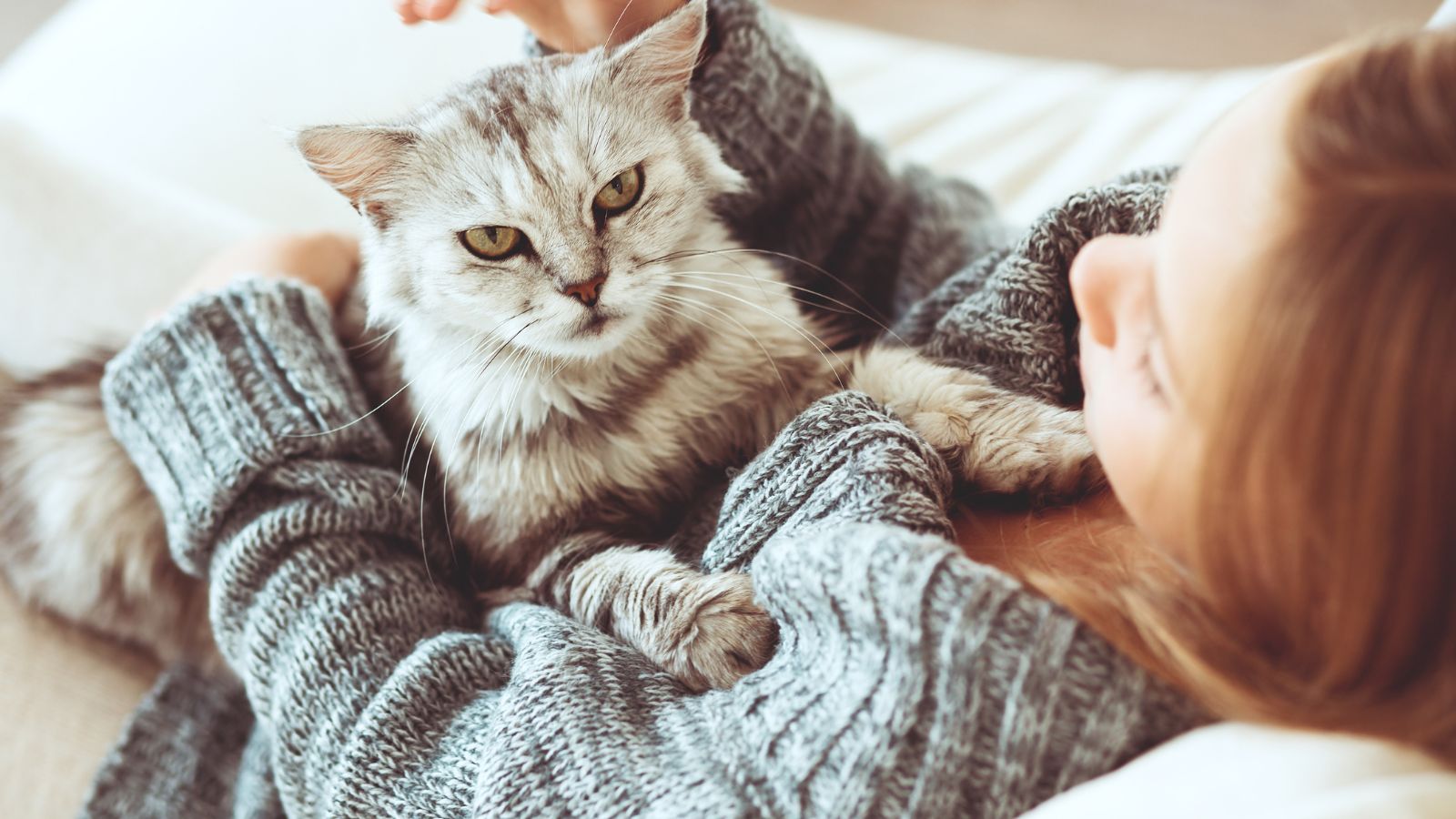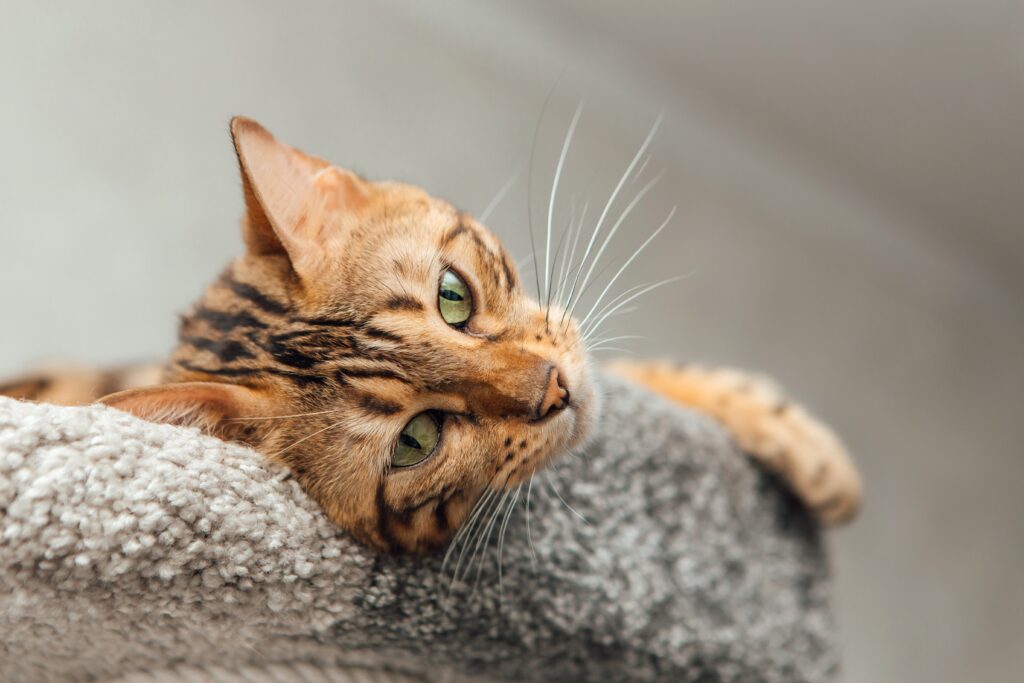Robert A. Heinlein once said, “Women and cats will do as they please, and men and dogs should relax and get used to the idea.” While we adore our feline friends, their behavior can sometimes puzzle even the most experienced cat owners. We’ll be looking at some of these behaviors and tell you what’s really going on.
Meowing Excessively

Some cat breeds, such as Siamese, are naturally chattier than their feline cousins. However, adult cats don’t usually meow at each other; it is a trick they learn to communicate with their humans. But if your normally quiet cat suddenly has a vocal side, pay attention; it could mean they’re in pain or something else is happening.
Purring When Not Happy

We associate cat purrs with a sign of contentment, and 90% of the time, that is what it is. “In addition to indicating happiness, purring can be a sign of pain, stress, or fear. It can also be used as a way to self-soothe and may even have healing properties,” writes the BBC. The frequency of your kitty’s purr can also help reduce your blood pressure, relieve stress, and heal your body.
Kneading You With Their Paws

Just another day at the biscuit factory! Kittens learn to knead to stimulate milk flow from their mother while nursing. Adult cats, on the other hand, knead to let you know they are feeling happy, content, and relaxed. Feel honored if they choose you as their biscuit-baking surface, because it’s a sign of affection.
Rubbing Against You

ASPCA Insurance says, “When your cat bop, bop, bops you with their head, they’re saying, ‘I love you!’” And while your fur bestie’s rub against your leg makes you smile, they are really letting every other cat know that you’re spoken for by putting their scent on you like a scratch and sniff “property of” sign.
Bringing You “Gifts” of Prey

According to NPR, “A tracking study of more than 900 house cats shows when they kill small birds and mammals, their impact is concentrated in a small area, having a bigger effect than wild predators do.” House cats are God’s perfect killing machines wrapped in an 8-pound body, so even the best-fed cat will want to hunt if it’s let outside. If your cat brings you its prey, consider it a thank you for caring for them instead of the other option: they think you can’t hunt and have to take care of you.
Exposing Their Belly

Don’t trust the belly; it’s a trap! When a cat rolls over and shows you its belly, it’s a sign that it feels relaxed and trusts you, but that doesn’t mean it won’t attack if you try to rub the fluffiness. It’s a vulnerable position for them, so they naturally want to protect it.
Chattering at Birds Through the Window

Watching your baby chatter at the birds outside the window can be a hilarious sight and sound. “Behaviorists speculate that this is because your cat is frustrated that they cannot get outside to hunt prey. They also may be excited and slightly aggravated,” says the Drake Center. Rapid teeth chattering is an instinctive hunting behavior, and strange jaw movements may be the cat preparing its muscles to deliver a fatal bite to its prey.
Knocking Objects Off Surfaces

Cats aren’t jerks; they’re scientists! Cats may knock things over simply because they are curious about the object and how gravity works as a game. Or they may be trying to get your attention because they’re bored and need more stimulation.
Eating Grass or Houseplants

No, your cat isn’t trying to tell you it’s vegan. Eating small amounts of grass is a normal behavior that may help cats regurgitate hairballs. It can also be a sign of boredom, so ensure they have a safe plant like cat grass around and keep them away from toxic ones.
Drinking From Faucets

In the wild, cats prefer running water over still water as it’s less likely to harbor bacteria, so the sound of the running water unlocks the instinct to look for a stream to drink from. If your cat refuses the bowl and wants only the tap, try getting them a pet water fountain; the sound may be soothing for you, too.
Sleeping in Tight Spaces

Even big cats love a good box. Felines are both predators and prey, so concealed spots to nap help them feel safe. Help your cat rest easy by providing cozy beds and boxes to snuggle up in.
Ignoring You When Called

Yes, they heard you, and no, they aren’t coming. Unlike pack animal dogs, cats are independent and don’t feel compelled to come when called. Speaking to them in a soft, calm voice will get them to come over quicker than yelling, and realistically, treats work the best.
Attacking Your Ankles

Ankle biter may be the moniker of small dogs, but a kitten in desperate need of stimulation can attack ankles with the best of them. If your kitten is using you as its hunting target, it may be time to hit the pet store for fishing pole toys to give it the opportunity to chase, jump, and pounce on something other than you.
Grooming Excessively

Cats are naturally clean creatures, and the Cornell College of Veterinary Medicine says they spend up to 50% of their waking hours self-grooming! But if your cat is cleaning like a germaphobe diva, you need to keep an eye out for medical issues, allergies, or possible anxiety.
Staring at You

Don’t blink! Actually, slow blink, because your cat will think you’re smiling or blowing them a kiss because that’s what they do to show affection. Cats can stare to communicate their desires or get attention from their humans. Beware of the hard, unblinking stare, as that is a challenge, and an attack may be imminent.
Hiding When Strangers Visit

Now you see them, and now you don’t. Do you have a shy cat who suddenly becomes invisible when guests come over? Cats often hide when new people come over until they feel it’s safe to come out. Don’t fret; give your baby a quiet room to retreat when visitors arrive, and let them approach on their terms.
Scratching Furniture

Has the corner of your couch become your cat’s favorite claw artwork? Scratching is a natural behavior cats use to mark territory, remove old claw sheaths, and stretch. However, the behavior can be curbed by providing scratching posts and mats. If you’re brave enough, you can trim your cat’s claws or use temporary claw caps, like a little kitten manicure.
Getting the “Zoomies”

It’s 3 a.m., and it’s time for the cat races! Random bursts of running and crazy activity are normal ways for cats to burn off excess energy, especially at night when cats are instinctively more active. Burn off that extra energy with a before-bed play session; maybe you can get some zzzs.
Peeing Outside the Litter Box

If you’re frustrated with your cat not using the litter box, it may be time to check in with the vet. Not using the litter box can be as simple as not liking the new litter you’re using, or it could be a sign of a severe medical problem. Be sure to clean litter boxes, have multiple boxes for multiple cats, and use a litter they approve of, says Pet Place.
Showing Their Butt

Don’t rush out and buy a little cat butt gem. Seriously, please don’t! When cats raise their tail straight up and show you their rear, it’s a friendly greeting, even if it looks like they’re trying to tell you to “kiss their…”







